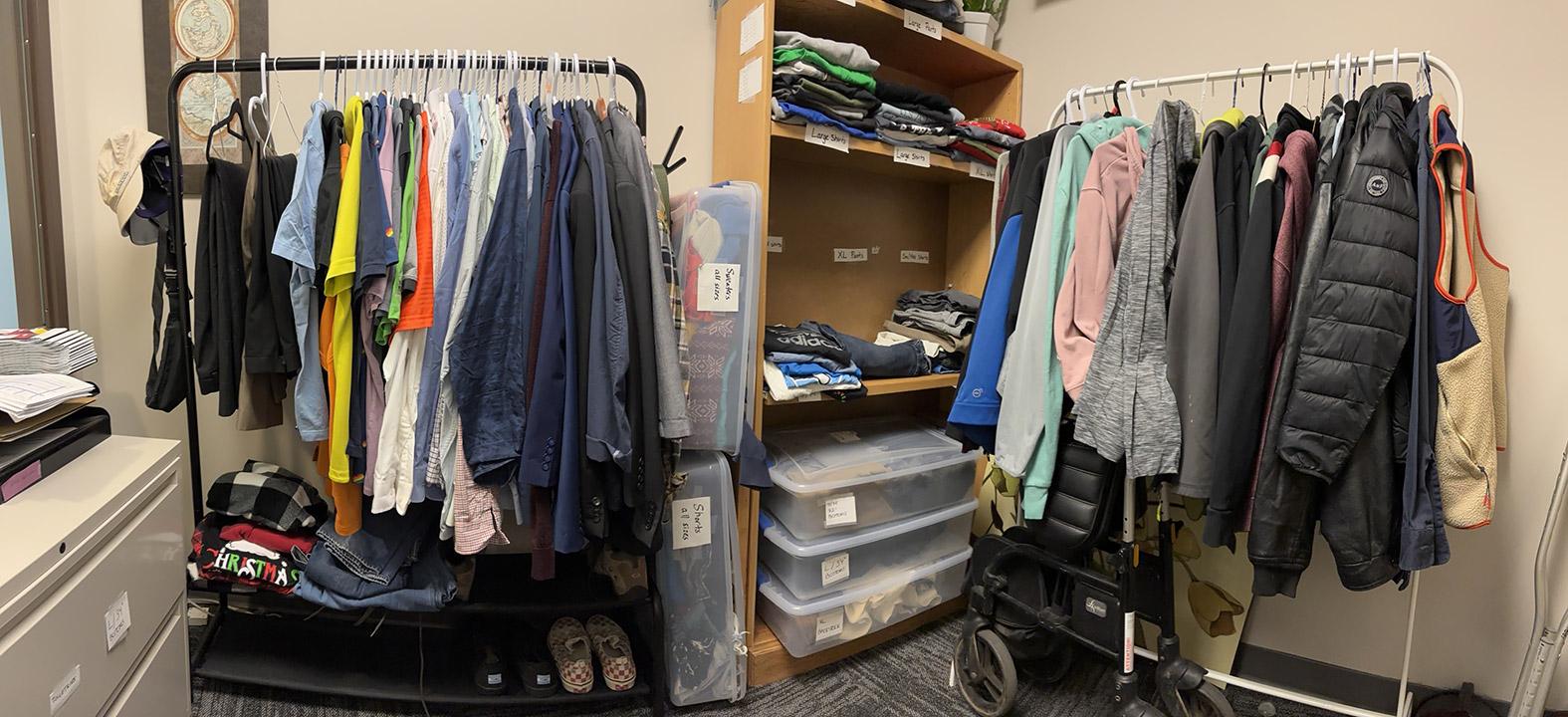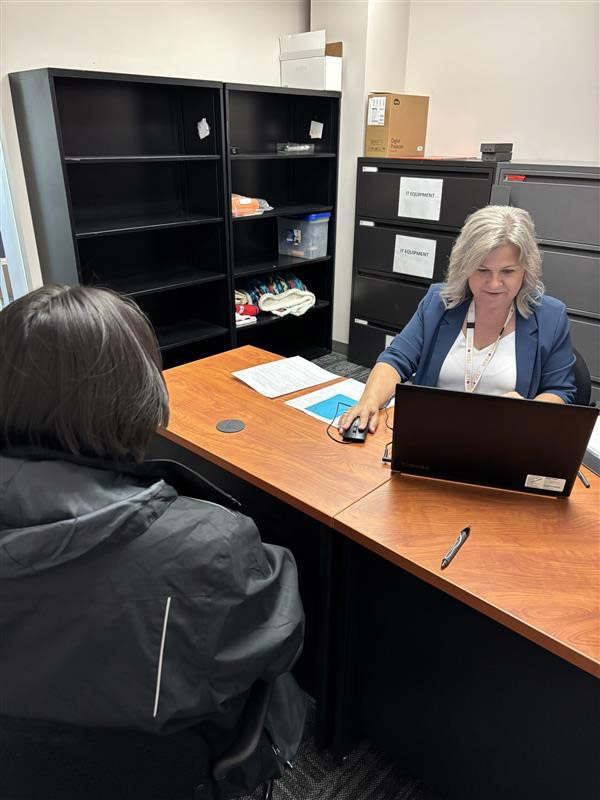CSC staff work with community volunteers to provide essentials to offenders on release in the community
October 24, 2025

For many offenders, parole is an important step in their rehabilitation and reintegration. For Correctional Service of Canada (CSC) staff, it’s an important part of their work – protecting Canadians by monitoring offenders who are released under community supervision.
The transition from prison to the community can be difficult.
“They need clothing that's appropriate to go and apply for a job,” says Katrina Williams, a Correctional Program Officer at the Edmonton Parole Office.
To help address concerns with offenders lacking the essentials that they need, Katrina and CSC staff in the Edmonton and Calgary Parole Offices have gone above and beyond to launch volunteer-run programs. These programs are focused on helping offenders access basic needs and develop the skills necessary to thrive outside the walls of an institution.
Katrina says that offenders under community supervision lack other essentials upon release, such as suitable clothing, shoes and hygiene products.
In 2021, she became involved with the Wahkohtowin Information Network (WIN), while it was still in its early stages. At the time, the parole office had already been providing services such as essential products and support services, but there was a grassroots effort in the office to create a dedicated initiative. WIN regularly puts out calls for donations from the community to help fill these gaps. So far, the response has been remarkable.
“At this point, we even sometimes have offenders who will come and drop things off,” Katrina says. “They have borrowed work boots, then they've started working and now they've bought a pair with their own earnings and so then they'll bring the boots back and sort of re-donate them.”
With the success of the WIN program, it didn’t take long for other parole offices in the province to take notice.
In September 2023, Kirsten Robson, a Correctional Program Officer (CPO) in Calgary, attended a meeting with other CPOs in Red Deer. There, Correctional Program Officers shared various programs and approaches they’ve implemented in their offices. When Katrina gave a presentation on WIN, Kirsten latched on to the idea and immediately began thinking of bringing a version to Calgary. Many of the offenders in Calgary were facing the same challenges as those in Edmonton.
“As I was sitting there listening to Katrina's presentation, I came up with the Access to Clothing and Essentials (ACE) name and I showed it to my manager across the room and she's like, ‘yes, go for it’,” Kirsten recalls.
From there, the Calgary Parole Office created ACE, an initiative designed to deliver some essentials that offenders in the community may not have been able to access on their own.
“We designated a room as the ACE room,” she says. “It's full of different sizes of clothing, toiletries, information on homeless shelters, buses and transit and places they could go to connect with a family doctor.”

Kirsten says offenders, particularly from smaller communities outside of Calgary, can have difficulties navigating the city upon their release, so ACE provides information about the city’s transit system and layout. ACE also assists offenders to file taxes and access community services that they may not know are available to them.
By helping to coordinate access to essentials and services, ACE plays an important role in safely reintegrating offenders into their communities with the tools they need to succeed.

While Kirsten is not shy about talking about how she “stole” the idea from Edmonton, it quickly morphed into a program unique to Calgary that works with local partners.
While Katrina and Kirsten help administer the programs, much of the work is done by volunteers from the community generously giving their time. The volunteers are supported by staff at the parole offices, who work with the programs along with their other duties,
“We are entirely volunteer driven,” Katrina says.
Helen Treller, who was responsible for overseeing both programs as the substantive Associate District Director of the Alberta and Northwest Territories Parole Office, says she is constantly impressed with the work staff and volunteers put in for the program.
“I'm fortunate that I get that higher view, so I get to see the benefits from both organizations, which is just fantastic,” she says.
Helen says hearing stories of the programs being able to provide essentials like suitable winter boots is incredibly gratifying.
“It's kind of that warm, feel-good story,” she says. “It's not felt that it's a ‘have to’, this feels like we want to. We want to support these guys.”
As for the future, both Katrina and Kirsten say they are looking to keep operating and evolving to meet the needs of the offenders. Katrina says WIN is looking for ways to create more group programming so offenders can develop social skills by interacting with one another.
“We want to bridge the gaps to help people to be more successful so that we are reducing the risk of recidivism,” Katrina says. “We are impacting public safety in a positive way and that they are motivated to move forward in their life.”
Thank you, Katrina and Kirsten – and all the volunteers, for the important work you have done and continue to do to for the community and to improve public safety!